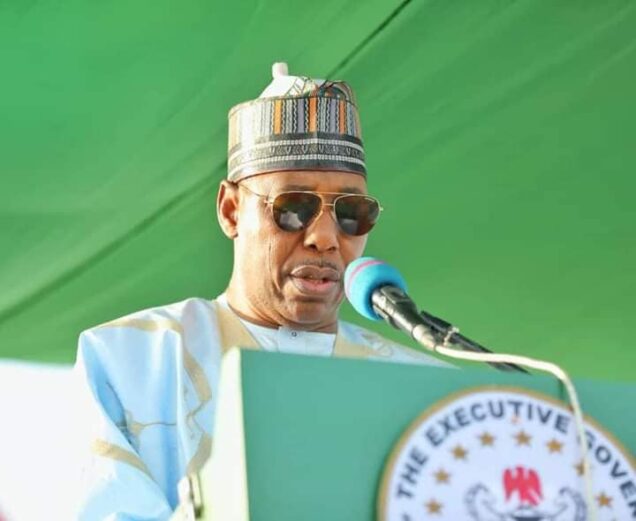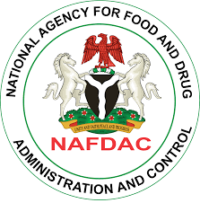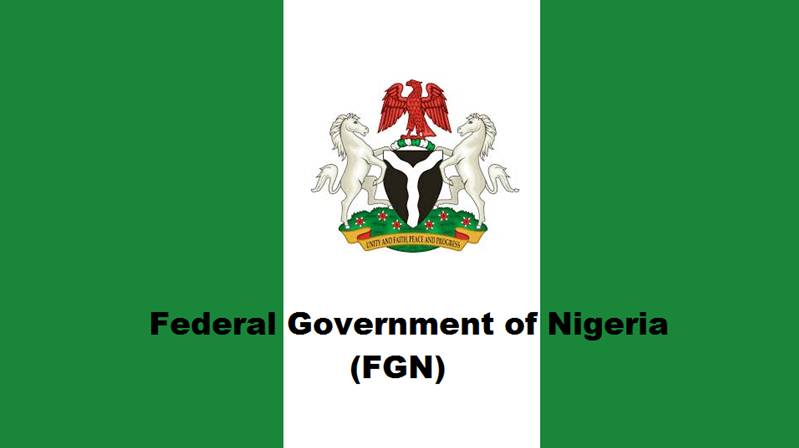Headlines
Medical experts: We now have one doctor to 6,400 patients

MEDICAL experts have raised the alarm that the ratio of doctors available in the country was now one to 6,400 patients as a result of brain-drain.
The experts, including the Chief Medical Director, University of Medical Sciences Teaching Hospital, Ondo State, Dr. Oluwole Ige, and an Associate Professor of Orthopaedic Rehabilitation, Obafemi Awolowo University, Ile- lfe, Osun state, Dr. Teslim Onigbinde, spoke in Ondo at the 2nd induction of physiotherapists, who recently graduated from the University of Medical Sciences, UNIMED, Ondo.
The figure is 5,900 patients higher than the United Nations recommended ratio of one doctor to 500 patients.
It is also 1,400 patients higher than one doctor to 5,000 patients, the Nigerian Medical Association, NMA, declared, late last month, at its Anambra Chapter’s Physicians’ Week and Scientific Conference in Nnewi.
38.7% of Nigerians suffer healthcare depreciation
Apart from poor access to doctors, access to health facilities is also a challenge, as the recently released multi-dimensional poverty by the National Bureau of Statistics survey showed that more than one out of every three Nigerian suffers deprivation in terms of time to healthcare.
According to the report, titled: “The 2022 Multidimensional Poverty Index,” a household is deprived if it takes them 30 minutes or more to reach the nearest functional health facility or primary healthcare centre on foot.
The survey revealed that 38.7 per cent of Nigerians spend more than 30 minutes to reach the nearest functional health facility.
NMA Secretary General, Dr. Jide Onyekwelu, who spoke at the Nnewi event, had said the rate at which doctors were migrating for greener pastures posed serious manpower crisis in the health sector, noting that while the UN standard recommended an average of one doctor to 500 patients, the ratio had dropped to about 1:5000 in Nigeria due to the declining number of doctors in the country.
Current statistics, according to the medical experts at the induction ceremony in Ondo, the number has dropped further to 6,400 patients to one doctor.
Dr. lge expressed worries over the rate at which medical professionals were leaving Nigeria in search of better opportunities abroad.
He called for urgent measure to salvage the trend, saying: “the country is in dire emergency situation within the medical sector.”
Ige, who spoke through, the Chairman, Medical Advisory Committee, CMAC, Dr. Michael Gbala, expressed mixed feelings that half of the 34 inductees were already nursing the ambition to board the next flight to developed countries and appealed to medical personnel in Nigeria to always give a second thought before leaving the country.
His words: “You (inductees) are coming at a time there is mass exodus of medical personnel. The university has taken about five years to train you, so Nigerians will be happy to have you around.
“If your lecturers had left, they will not be around to train you. We are in a very serious situation. Except something is done, we might be heading towards major crisis. I salute those who are still around, despite the challenging situation.
“Wherever you may be, ensure you continue to retrain yourselves and be good ambassadors of the institution.”
On his part, Dr. Onigbinde described the ratio of doctors available to patients in the country as worrisome and stressed the urgent need to halt the brain drain in the health sector.
‘Work in Nigeria first’
The Vice Chancellor of the institution, Prof. Olusegun Fatusi, who was represented by the Deputy Vice Chancellor, Administration and Clinicals, Prof. Adolphus Loto, said the inductees could seek employment in any country they desire, but advised that they must ensure they worked in Nigeria first before travelling out of the country.
“It is your right to seek employment anywhere in the world because it is part of the international labour mobility. But my advice is that before you leave, you must get a job here.
“Many people cannot come back because there is nothing to fall back on. You have two goals in your career; to solve societal problems and to solve personal problems.
“We are proud of you and your achievement so far. The induction programme, as you have been well-tutored, is not a mere ceremony. It is a critical rite of passage into a new life – the life of professional health workers, and specifically your entry into the distinguished and rewarding profession of physiotherapy.”
Also, the Dean, Faculty of Medical Rehabilitation, Prof. Matthew Olaogun, advised the inductees to remain focused on their chosen career, and pursue what they had learned in the university with the spirit of godliness and excellence.
He also expressed concern over the rate doctors were relocating abroad, leaving the health sector in dire straits.
The Registrar, Medical Rehabilitation Body of Nigeria, Olufunke Akanni, represented by the Deputy Registrar, Mr Akinyele Adeniran, admonished them to be watchful of hospitals they will undergo their mandatory 12 months internship.
Govt must act fast to stop brain drain – NMA
Reacing to the development yesterday, the Njigerian Medical Association, NMA, urged government to act fast to stop its members from migrating abroad.
Making the call, the FCT chapter of NMA, said that it was in talk with members to consider service to their fatherland in the face of government nonchalant attitude to their plights.
The Public Relations Officer of the chapter, Dr. Muyiwa Komolafe, told Vanguard: “Brain drain is not going to end anytime soon because apparently as it is, there is really no incentive to make people stay here and serve in their country.
“However, we are trying to talk to one another to soft-pedal, that there are economic realities because you can imagine somebody earning in Pounds and Dollars, with the declining rate of the Naira. That is another factor driving people to leave the country.
“Some other things which people are supposed to look at are the possibility that if you are at home, you are in your own country and you can walk around without fear of being castigated, harassed and called all manner of names and all of that. It’s not as if those people are actually friendly to us.
“Insecurity is one of the reasons people are leaving. Many of our colleagues have become victims of the bad security situation in the country and this is contributing to the migration of our people outside the shores of this country, thus causing the brain drain.
“You cannot be kidnapped overseas. The police will be at the forefront of the matter, unlike here that even the police are not free from kidnap.
“Family pressure is also contributing to the migration of our members abroad. Every family wants its own person to travel abroad. When you see your colleagues that just moved abroad buying new cars even for their fathers and doing other things and you can’t even give N30,000 to your father, why would you not want to go abroad?”
Headlines
Noble Ladies Champion Women’s Financial Independence at Grand Inauguration in Abuja

Women from diverse backgrounds across Nigeria and beyond gathered at the Art and Culture Auditorium, Abuja, for the inauguration and convention of the Noble Ladies Association. The event, led by the association’s Founder and “visionary and polished Queen Mother,” Mrs. Margaret Chigozie Mkpuma, was a colourful display of feminine elegance, empowerment, and ambition.
The highly anticipated gathering, attended by over 700 members and counting, reflected the association’s mission to help women realise their potential while shifting mindsets away from dependency and over-glamorization of the ‘white collar job.’ According to the group, progress can be better achieved through innovation and creativity. “When a woman is able to earn and blossom on her own she has no reason to look at herself as a second fiddle,” the association stated.
One of the association’s standout initiatives is its women-only investment platform, which currently offers a minimum entry of ₦100,000 with a return of ₦130,000 over 30 days—an interest rate of 30 percent. Some members invest as much as ₦1 million, enjoying the same return rate. Mrs. Mkpuma explained that the scheme focuses on women because “women bear the greater brunt of poverty” and the platform seeks “to offer equity in the absence of economic equality.”
Education is also central to the Noble Ladies’ mission, regardless of age. Their mantra, “start again from where you stopped,” encourages women to return to school or upgrade their skills at any stage in life. The association believes that financial stability is vital in protecting women from cultural practices that dispossess widows of their late husbands’ assets, while also enabling them to raise morally and socially grounded families.
Founded on the vision of enhancing women’s skills and achieving financial stability, the association rests on a value system that discourages pity and promotes purpose. “You have a purpose and you build on that purpose to achieve great potentials and emancipation,” Mrs. Mkpuma said.
A criminologist by training and entrepreneur by practice, she cautions against idleness while waiting for formal employment. “There are billions in the informal and non-formal sectors waiting to be made,” she said, rejecting the “new normal of begging” and urging people to “be more introspective to find their purpose in life and hold on to it.”
Mrs. Mkpuma’s management style keeps members actively engaged, focusing on vocational skills and training to prepare them for competitive markets. She is exploring “innovative integration of uncommon technologies” and is already in talks with international franchises to invest in Nigeria, with Noble Ladies as first beneficiaries.
The association’s core values include mutual respect, innovation, forward-thinking, equal opportunity, and financial emancipation. With plans underway to establish a secretariat in the heart of Abuja, the group aims to expand its impact.
The event drew high-profile guests, including former Inspector General of Police, Mike Okiro, and a host of VIPs, marking a significant milestone in the association’s drive for women’s empowerment.
Headlines
NEPZA, FCT agree to create world-class FTZ environment

The Nigeria Export Processing Zones Authority (NEPZA) has stepped in to resolve the dispute between the Federal Capital Territory Administration and the Abuja Technology Village (ATV), a licensed Free Trade Zone, over the potential revocation of the zone’s land title.
Dr. Olufemi Ogunyemi, the Managing Director of NEPZA, urged ATV operators and investors to withdraw the lawsuit filed against the FCT administration immediately to facilitate a roundtable negotiation.
Dr. Ogunyemi delivered the charge during a courtesy visit to the Minister of the Federal Capital Territory, Barrister Nyesom Wike, on Thursday in Abuja.
You will recall that the ATV operators responded to the revocation notice issued by the FCT administration with a lawsuit.
Dr. Ogunyemi stated that the continued support for the growth of the Free Trade Zones Scheme would benefit the nation’s economy and the FCT’s development, emphasizing that the FCT administration recognized the scheme’s potential to accelerate industrialisation.
Dr. Ogunyemi, also the Chief Executive Officer of NEPZA, expressed his delight at the steps taken by the FCT minister to expand the economic frontier of the FCT through the proposed Abuja City Walk (ACW) project.
Dr. Ogunyemi further explained that the Authority was preparing to assess all the 63 licensed Free Trade Zones across the country with the view to vetting their functionality and contributions to the nation’s Foreign Direct Investment and export drives.
“I have come to discuss with His Excellency, the Minister of the Federal Capital Territory on the importance of supporting the ATV to succeed while also promoting the development of the Abuja City Walk project. We must work together to achieve this for the good of our nation,” he said.
On his part, the FCT Minister reiterated his unflinching determination to work towards President Bola Ahmed Tinubu’s Renewed Hope Agenda by bringing FDI to the FCT.
“We must fulfil Mr. President’s promises regarding industrialization, trade, and investment. In this context, the FCT will collaborate with NEPZA to review the future of ATV, a zone that was sponsored and supported by the FCT administration,” Wike said.
Barrister Wike also said that efforts were underway to fast-track the industrialisation process of the territory with the construction of the Abuja City Walk.
The minister further said the Abuja City Walk project was planned to cover over 200 hectares in the Abuja Technology Village corridor along Airport Road.
According to him, the business ecosystem aimed to create a lively, mixed-use urban center with residential, commercial, retail, hospitality, medical, and institutional facilities.
He added that the ACW would turn out to be a high-definition and world-class project that would give this administration’s Renewed Hope Agenda true meaning in the North-Central Region of the country.
Barrister Wike also indicated his continued pursuit of land and property owners who failed to fulfil their obligations to the FCT in his determination to develop the territory.
Headlines
Benue IDPs block highway, demand return to ancestral homes

Vehicular movement along the Yelwata axis of the Benue–Nasarawa highway was brought to a standstill on Wednesday as Internally Displaced Persons, IDPs, staged a protest, demanding immediate return to their ancestral homes.
The protesters, believed to be victims of persistent attacks by suspected herdsmen, blocked both lanes of the busy highway for several hours, chanting “We want to go back home”.
The protest caused disruption, leaving hundreds of motorists and passengers stranded.
Eyewitnesses said the displaced persons, many of whom have spent years in overcrowded IDP camps, are expressing deep frustration over the government’s delay in restoring security to their communities.
“We have suffered enough. We want to return to our homes and farms,” one of the protesters told reporters at the scene.
Security personnel were reportedly deployed to monitor the situation and prevent any escalation, though tensions remained high as of press time.
Efforts to reach the Benue State Emergency Management Agency, SEMA, and other relevant authorities for comment were unsuccessful.
-

 Headlines4 years ago
Headlines4 years agoFacebook, Instagram Temporarily Allow Posts on Ukraine War Calling for Violence Against Invading Russians or Putin’s Death
-

 Headlines4 years ago
Headlines4 years agoNigeria, Other West African Countries Facing Worst Food Crisis in 10 Years, Aid Groups Say
-

 Foreign4 years ago
Foreign4 years agoNew York Consulate installs machines for 10-year passport
-

 News1 year ago
News1 year agoZero Trust Architecture in a Remote World: Securing the New Normal
-

 Entertainment3 years ago
Entertainment3 years agoPhyna emerges winner of Big Brother Naija Season 7
-

 Headlines2 years ago
Headlines2 years agoNigeria Customs modernisation project to check extortion of traders
-

 Entertainment2 years ago
Entertainment2 years agoMovie download platform, Netnaija, announces closure
-

 Economy2 years ago
Economy2 years agoWe generated N30.2 bn revenue in three months – Kano NCS Comptroller














